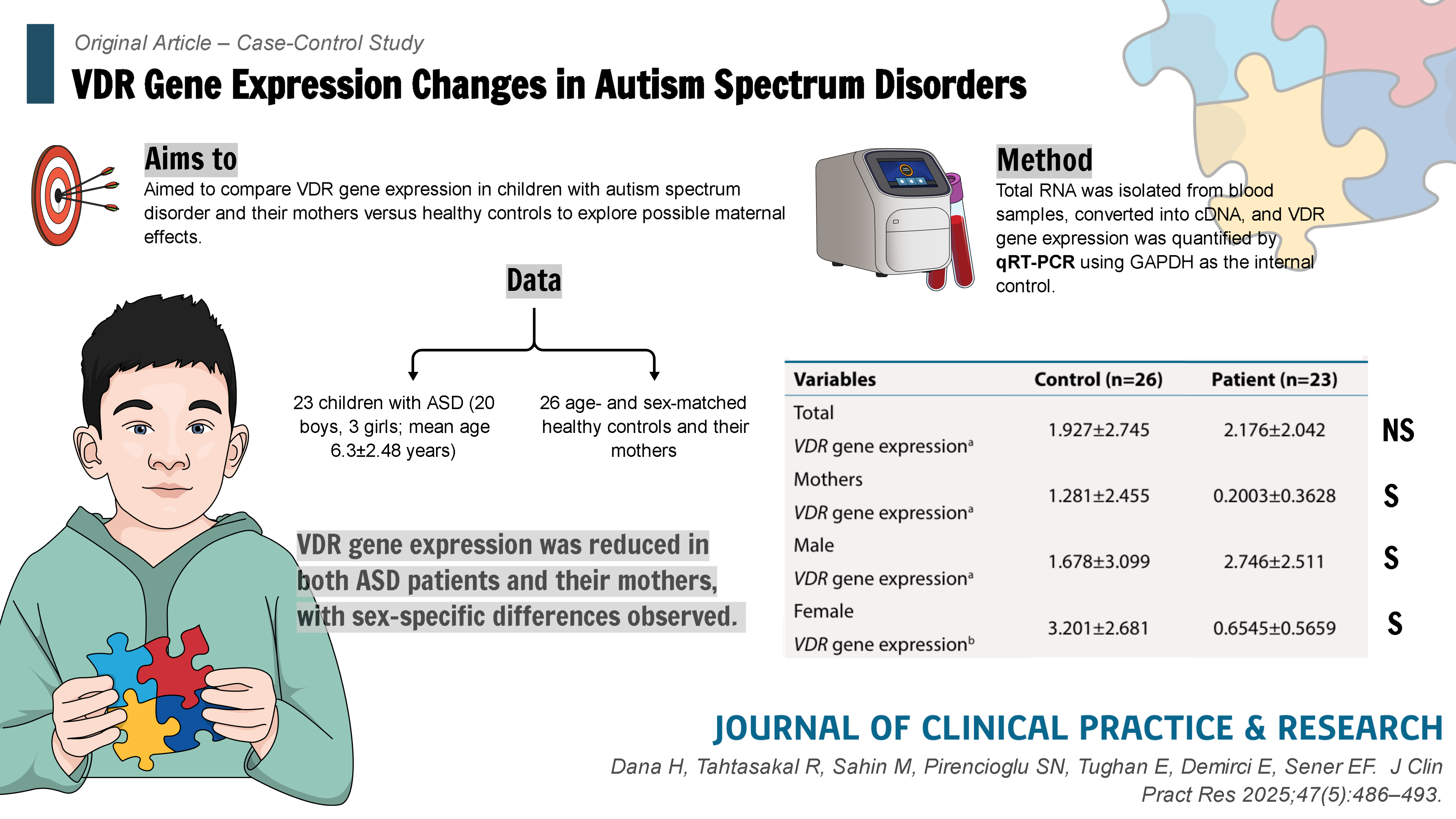2Genome and Stem Cell Center (GENKOK), Erciyes University, Kayseri, Türkiye
3Department of Child and Adolescent Psychiatry, Kayseri State Hospital, Kayseri, Türkiye
4Department of Child and Adolescent Psychiatry, Erciyes University Faculty of Medicine, Kayseri, Türkiye
Abstract
Objective: Autism spectrum disorders (ASD) are clinically heterogeneous conditions associated with cognitive impairments. Vitamin D (VD) deficiency has been proposed as a potential risk factor for neurodevelopmental disorders, including ASD. However, the roles of VD and vitamin D receptor (VDR) genes in ASD remain largely unexplored.
Materials and Methods: We evaluated VDR gene expression levels in peripheral blood samples from 23 children with ASD and their mothers, as well as 26 age- and sex-matched controls and their mothers.
Results: Reduced VDR gene expression was observed in both children with ASD and their mothers. Furthermore, VDR expression exhibited sex-specific differences, with male ASD patients showing significantly higher expression levels compared to female patients.
Conclusion: Few studies have investigated maternal VDR expression in the context of ASD. Future research involving larger family-based cohorts is warranted to further elucidate the role of VDR in ASD and its potential relevance to neuropsychiatric conditions.
Graphical Abstract



